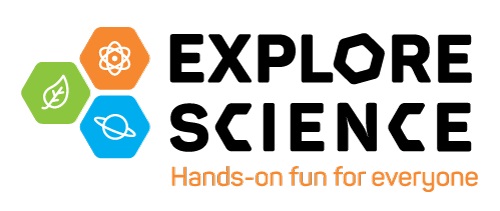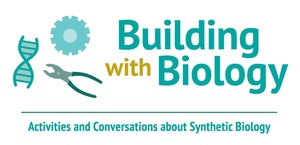Welcome to the July e-newsletter for the National Informal STEM Education (NISE) Network and community.
INSIDE THIS ISSUE
INSIDE THIS ISSUE
- Community News - "NanoDays Collection" shipped to active NISE Network partners, Building with Biology events have begun taking place around the U.S. this summer, Space and Earth Informal STEM Education (SEISE) project, Sustainability in Science Museums digital kit available for download online
- Upcoming Events - Upcoming online workshops: Staying connected to the Network and community, My Sky Tonight workshop: Astronomy for pre-K children in museums, Association of Science-Technology Centers (ASTC) Annual Conference 2016
- Featured on the Website - Building with Biology Kit, SustainABLE Kit, NanoDays Collection Book, DIY Nano Book
- Partner Highlights - NISE Network partner museum honored with 2016 National Medal for Museum and Library Service, Museum & Community Partnership - Zoom into Science at the Library, Building with Biology at the Museum of Science in Boston
- Science in the News - New nanomaterial offers promise in bendable, wearable electronic devices; Genetically engineered crops appear to be safe, federal expert analysis finds; Silicon Valley's bloody plant burger smells, tastes and sizzles like meat; Juno in orbit around might Jupiter
- Nano Throughout the Year
COMMUNITY NEWS
 The NISE Network has created a collection of resources related to NanoDays as a way to thank our partner organizations for your involvement with the Nanoscale Informal Science Education Network (NISE Net) over the past years. The physical box includes a "NanoDays Collection" book, which is a complete compendium of NanoDays activities and resources, a "DIY Nano" book of science activities that investigate the nanoscale, as well as helpful guides on museum and community partnerships and program development. We hope these resources will also inspire and encourage you to continue your efforts to engage public audiences in nanoscale science, engineering, and technology through use of NanoDays hands-on activities, programming, the Nano mini-exhibit, and NanoDays events. View or download the digital version of the NanoDays Collection: http://www.nisenet.org/nanodays-collection-digital-download.
The NISE Network has created a collection of resources related to NanoDays as a way to thank our partner organizations for your involvement with the Nanoscale Informal Science Education Network (NISE Net) over the past years. The physical box includes a "NanoDays Collection" book, which is a complete compendium of NanoDays activities and resources, a "DIY Nano" book of science activities that investigate the nanoscale, as well as helpful guides on museum and community partnerships and program development. We hope these resources will also inspire and encourage you to continue your efforts to engage public audiences in nanoscale science, engineering, and technology through use of NanoDays hands-on activities, programming, the Nano mini-exhibit, and NanoDays events. View or download the digital version of the NanoDays Collection: http://www.nisenet.org/nanodays-collection-digital-download.
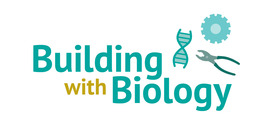
→ Building with Biology events have begun taking place around the U.S. this summer

Physical kits have shipped and Summer 2016 Building with Biology events have kicked off at institutions around the country, beginning in June and continuing throughout the summer into the early fall. If you're interested in seeing where Building with Biology events are taking place, check out the list of kit recipients, and don't forget to share your events, activities and conversations with us on social media: #buildingwithbiology and #meetsynbio!
Opportunities
- We still have a few free physical kits available, learn more and how to apply
- Still seeking scientists? Invite a FBI agent to participate in your Building with Biology event!
Resources
- Building with Biology digital kit includes digital versions of all the planning and promotional, orientation and training, and educational materials provided in the physical kit.
- Training videos for Building with Biology hands-on activities, forum, and data collection.
- What's in Your Building with Biology Kit webinar explores the kit's hands-on activities, professional and educational resources, and evaluation materials.
- Building with Biology forums provide an opportunity to engage your audience in thoughtful conversations with scientists about important issues regarding the potential societal and ethical implications of synthetic biology. Forums have been developed around the topics of gene-drives and the gene-editing technique, CRISPR.
- Event Planning and Marketing Guide for planning and promoting your Building with Biology event, including sample press releases.
- Online scientist volunteer orientations presented by AAAS will help to prepare scientists and volunteers facilitating hands-on activities at your event.
→ Space and Earth Informal STEM Education (SEISE) project
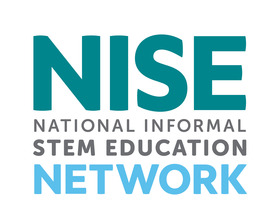

The NISE Net's newest project, funded by NASA Science Mission Directorate, will help raise the capacity of museums and informal science educators to engage the public in Earth Science, Planetary Science, Heliophysics, and Astrophysics. The Network is developing toolkits with hands-on activities that explore Earth and space sciences. We will distribute 250 toolkits each year over the next four years. The application for the first Explore Science: Earth & Space toolkit will be online this September, and will be due November 4th. More application details coming soon!
→ Sustainability in Science Museums digital kit available for download online

→ Sustainability in Science Museums digital kit available for download online
The SustainABLE Kit is designed to engage the public in sustainability through the educational power of science centers and museums. The SustainABLE Kit includes six hands-on activities, planning and promotional, and orientation and training materials that can be used to host your own sustainability event or to incorporate into your current programming. Learn more about the Sustainability in Science Museums project.
→ National Informal STEM Education (NISE) Network transition
UPCOMING EVENTS
FEATURED ON THE WEBSITE
PARTNER HIGHLIGHT
NISE Network partner museum honored with 2016 National Medal for Museum and Library Service
→ Upcoming online workshops: Staying connected to the Network and community
There is no charge to participate in any of the online workshops.
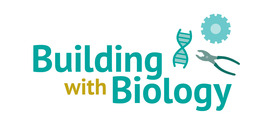

The Building with Biology project is continuing to host online project orientations in July to provide support to host sites in preparation for summer events and forums. The American Association for the Advancement of Science (AAAS) will be hosting a second series of online project orientations for Building with Biology scientist volunteers and staff. Sign up now for the upcoming free orientations:
- 7/12: Building with Biology: Public Engagement Fundamentals (for scientists) - repeat
- 7/13: Building with Biology: All about Audiences (for scientists) - repeat
- 7/14: Building with Biology: Communicating Synthetic Biology (for scientists) - repeat
In case you missed it
A recording of the following webinars and their resources are available here.
- Engaging Audiences in Science through Building with Biology Public Forums (for host site staff)
- Building with Biology: Host Site Overview - Communicating Synthetic Biology (for host site staff)
- Evaluating the Public's Experience at Building with Biology Events (for host site staff)
- What's in Your Building with Biology Kit (for host site staff)
- Evaluating Building with Biology Forums (for host site staff)
- Building with Biology: Public Engagement Fundamentals (for scientists)
- Building with Biology: All about Audiences (for scientists)
- Building with Biology: Communicating Synthetic Biology (for scientists)
→ My Sky Tonight Workshop: Astronomy for Pre-K Children in Museums
Museum educators are invited to participate in a free My Sky Tonight workshop, hosted by the Astronomical Society of the Pacific (ASP), to bring the excitement of astronomy to pre-K children and their families. In the workshop, participants will learn methods of engaging young children and their families in basic concepts and activities related to astronomy. Each participant will also receive a free toolkit of hands-on astronomy activities designed for children age 3-5, which have been tested at multiple museums. Applications for the Fall workshops are due by July 31st. For more information, and to apply to participate in this free workshop, visit goo.gl/L1SMaJ.
→ Association of Science-Technology Centers (ASTC) Annual Conference 2016
→ Association of Science-Technology Centers (ASTC) Annual Conference 2016
The NISE Network invites staff from partner institutions to a partner breakfast to learn about transition plans to the National Informal STEM Education Network, new project opportunities and to meet other Network partners from across the country. NISE Net Partner Breakfast: Sunday, September 25, 2016 from 7:30-8:30 AM; Where: Tampa Marriott Waterside Hotel, Meeting Rooms 8/9.
The NISE Network will also be involved in a number of other activities and professional development, including:
- hosting a NISE Net booth in the exhibit hall where we'll feature public engagement activities, resources, and information about current and upcoming project opportunities
- Network partners presenting in a number of conference sessions about nano and synthetic biology
FEATURED ON THE WEBSITE
- Building with Biology Kit - the kit is designed to help museum and scientist partners engage public audiences in conversations and hands-on activities about the field of synthetic biology and the ways this emerging technology is interconnected with society.
- SustainABLE Kit - the online digital kit contains all the materials and resources you'll need to host your own Sustainability in Science Museums event.
- NanoDays Collection Book - a compendium of NanoDays activities and resources from the Nanoscale Informal Science Education Network. These materials can be adapted for use anytime of the year in various other events and regular programs.
- DIY Nano Book - the NISE Network's full collection of do-it-yourself science activities that investigate the nanoscale, which allow families to experience and learn about the nanoscale at home or on the go.
PARTNER HIGHLIGHT
NISE Network partner museum honored with 2016 National Medal for Museum and Library Service
We’d like to extend our most sincere congratulations to NISE Network partner, Mid-America Science Museum of Hot Springs, Arkansas, on receiving the prestigious 2016 National Medal for Museum and Library Service. This award, the nation’s highest honor given to museums and libraries for service to their community, honors institutions that respond to societal needs in innovative ways, making a difference for individuals, families and their communities. The First Lady Michelle Obama presented the award at a ceremony at the White House. The Mid-America Science Museum was one of only 10 museums and libraries selected nationwide to receive the award from the Institute of Museum and Library Services. Continue to the full partner highlight to read more about Mid-America Science Museum's award presented by First Lady Michelle Obama at this year's ceremony at the White House.
Museum & Community Partnership - Zoom into Science at the Library
The SUNY Poly Children’s Museum of Science and Technology (SUNY Poly CMOST) and the Albany Public Library have frequently worked together on a variety of STE(a)M based projects, recognizing one another as strong community organizations. With similar missions aimed at educating and engaging the public, when the opportunity was announced to apply for an Explore Science – Zoom into Nano kit that focused on Museum & Community partnerships, it was an obvious fit for The Museum to pursue Albany Public library as a partner in this endeavor...Continue to the full partner highlight to read more about the collaborative programs and family science events.
The SUNY Poly Children’s Museum of Science and Technology (SUNY Poly CMOST) and the Albany Public Library have frequently worked together on a variety of STE(a)M based projects, recognizing one another as strong community organizations. With similar missions aimed at educating and engaging the public, when the opportunity was announced to apply for an Explore Science – Zoom into Nano kit that focused on Museum & Community partnerships, it was an obvious fit for The Museum to pursue Albany Public library as a partner in this endeavor...Continue to the full partner highlight to read more about the collaborative programs and family science events.
The Museum of Science in Boston hosted its Building with Biology event on Sunday, June 26. The event was open to all museum visitors, and included hands-on activities, a graffiti board, passports and tattoos, and several guest presenters. Everyone was pleased with how well the hands-on activities worked. We also collected evaluation data, and the popularity of the temporary tattoos at the survey station definitely helped! Later that evening, we held the "Should We Engineer the Mosquito?" forum, and many of our scientists were able to stay to participate. By the end of the forum, our staff and scientist volunteers were exhausted, but we were all pleased with how the event went. Scientists have been asking when and how they can be involved with opportunities like this again, which is a great sign! One of our scientists even wrote a blog post describing his experience at the event.
SCIENCE IN THE NEWS
NANO THROUGHOUT THE YEAR
MEETINGS AND CONFERENCES
→ Nano News
Creating an ultra thin material that is both transparent and conductive is difficult to achieve but has been successfully produced by a team of international nanomaterials researchers from the University of Illinois at Chicago and Korea University. The new film is created by electrospinning a nanofiber mat, whose fibers are about one-hundredth the diameter of human hair, and are not alone conductive so it must be electroplated with a metal, such as copper, silver, nickel, or gold, to attract metal ions. The thin film, capable of retaining its properties after repeated cycles of severe stretching or bending, can then be transferred to any surface - for example the skin of the hand, a leaf, or glass.
→ Synthetic Biology News
According to a recently published report by the advisory group the National Academy of Sciences, Engineering, and Medicine, genetically engineered crops appear to be safe to eat and do not harm the environment. However, the question that still remains unclear is whether the technology has actually increased crop yields. The committee reviewed studies, heard testimony from witnesses in public meetings and webinars, and analyzed comments to inform their conclusions in the report covering a wide-range of issues from potential health risks, environmental impacts, increased food production, regulatory policy, and more.
- See Building with Biology-related hands-on activities: See DNA and Super Organisms
If it looks like, smells like, and tastes like beef but was actually made entirely from plants, would you eat the meatless burger? Researchers at the California-based company Impossible Foods believe many will, and with the demand for meat production expected to increase by 1% this year, these researchers are creating a faux meat that is less resource-intensive, healthier, and eventually cheaper to produce than red meat. Researchers behind the Impossible Burger have identified the magic ingredient for flavor in making faux taste real - and it's actually the smell. Heme, the iron-containing molecule in blood is highly concentrated in red meat. In order to give the plant-patty the same flavor as beef, researchers took the soybean gene that encodes the heme protein and transferred it into yeast, to produce vast quantities of the compound. "If people are going to be eating burgers in 50 years, they're not going to be made from cows," states the Impossible Foods' founder and CEO.
- See Building with Biology-related hands-on activities: Bio Bistro and Kit of Parts
→ Earth & Space Science News
NASA's Juno spacecraft, launched August 5, 2011, entered into orbit around the solar system's largest planet, Jupiter, on July 4th. Juno will study the gas giant's inner structure and composition, map out the gravitational and magnetic fields, explore how the swirling clouds are connected to its dynamic interior, as well as perform other science work over the course of dozens of orbits for at least a year. By learning about Jupiter, we can better understand the early history of the solar system and the conditions in which Earth was born.
NANO THROUGHOUT THE YEAR

Sun and Sand

For a list of of nano activities for use throughout the year, see NISE Net's list of seasonal activities.
Sun and Sand
- Nano Ice Cream program
- Invisible Sunblock hands-on activity
- Magic Sand / Nanosurfaces hands-on activity
- Exploring Products - Sunblock hands-on activity
- Ready, Set, Self-Assemble is a fun, outdoor group program
- Why are Seashells so Strong? hands-on activity
Summer Camp
MEETINGS AND CONFERENCES
July 19 - 23 - Visitor Studies Association (VSA) - Boston, MA
Features many NISE Network presentations and posters
September 24 - 27 - Association of Science Technology Centers (ASTC) Annual Conference 2016 - Tampa, FL - Registration now open
Includes NISE Network events, sessions, and booth
February 16 - 20 - American Association for the Advancement of Science (AAAS) 2017 Annual Meeting - Boston, MA
May 2 - 5, 2017 - Association of Children's Museums (ACM) Interactivity 2017 - Pasadena, CA - Session proposals due July 29
Do you have something you would like to submit for inclusion in the NISE Network monthly e-newsletter? Please send your announcements, articles, or community opportunities to Kayla Berry at [email protected].


